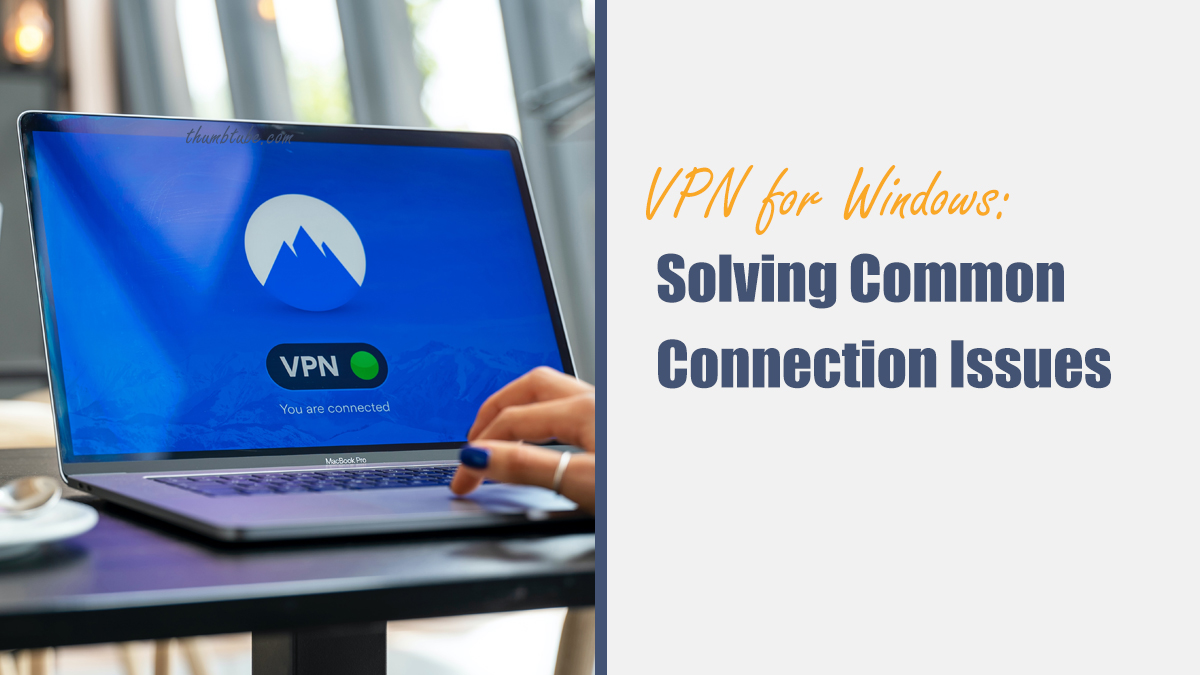In the digital age, VPNs (Virtual Private Networks) have become essential tools for Windows users seeking secure online connections. However, despite their numerous benefits, common connection issues can sometimes hamper the user experience.
This article dives into the world of VPN for Windows and offers solutions to tackle these frequently encountered problems, with a focus on the VPN service provided by ZoogVPN.
VPN for Windows is invaluable for ensuring online privacy, security, and access to region-restricted content. However, the prevalence of common connection issues, from slow speeds to unexpected disconnections, can be frustrating. In this guide, we’ll explore how to address these problems and maintain a seamless VPN experience on your Windows device.

Common VPN Connection Issues
Windows users often encounter several common connection issues when using VPNs:
- Slow Speeds: VPNs may slow down your internet speed due to encryption and the distance to the VPN server.
- Connectivity Problems: Users might face issues with connecting to the VPN server or frequent disconnections.
- DNS Leaks: Sometimes, DNS (Domain Name System) information can leak, compromising privacy.
- Compatibility Concerns: Incompatibility with specific apps or websites can be problematic.
Troubleshooting and Solutions
To tackle these common connection issues, consider the following solutions:
- Slow Speeds: Choose a nearby VPN server, use a faster VPN protocol, or upgrade to a higher-tier VPN plan with better speed.
- Connectivity Problems: Try different VPN protocols, update your VPN client, or contact your VPN provider for support.
- DNS Leaks: Configure your VPN to use a secure DNS server, or use a VPN client with built-in DNS leak protection.
- Compatibility Concerns: Ensure your VPN client and Windows OS are up to date. For problematic apps or websites, use split tunneling to exclude them from the VPN connection.
Preventive Measures
Preventing common connection issues is often better than solving them:
- Regular Updates: Keep your Windows OS, VPN client, and applications up to date to minimize compatibility issues.
- Choose a Reliable VPN Provider: Opt for a reputable VPN service like ZoogVPN that offers strong customer support and a variety of servers.
- Optimize VPN Settings: Customize your VPN settings, such as the VPN protocol and server selection, to suit your needs.
- Perform Periodic Speed Tests: Check your VPN’s speed with online tools and switch servers if performance deteriorates.

In conclusion, VPN for Windows is a powerful tool for enhancing online privacy and security. While common connection issues may arise, they are not insurmountable. By following the troubleshooting and preventive measures outlined in this guide, Windows users can ensure a reliable and secure VPN experience.
A quality VPN service like ZoogVPN can make all the difference, offering the support and infrastructure needed to tackle these common connection issues. By addressing and preventing these problems, you can maximize the benefits of VPN for Windows and enjoy a safe and seamless online experience.
